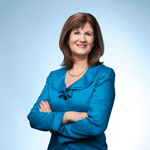![]() I was an entrepreneur as a kid selling gum on the playground. When I was a teenager, I was writing computer payroll programs on a Mac II, and later founded two different tech companies that I sold in 2000.
I was an entrepreneur as a kid selling gum on the playground. When I was a teenager, I was writing computer payroll programs on a Mac II, and later founded two different tech companies that I sold in 2000.
Yoga was new to me in 1999, something I tried after I broke both ankles in a mountain-climbing accident. The first few classes kicked my ass, and I was initially deflated by it. But I hit an epiphany after the 10th class that included how beneficial it was and that someone needed to demystify yoga. Yoga was so much better than my preconceptions.
I have always had grand aspirations. So when I opened my first studio, my business philosophy was to do it right, execute it properly, focus on the present—but to open more studios, one by one—which is how we did it. Now, we will have 95 units by the end of 2013, and will open 20–30 new units in 2014. This is with 1,500 instructors, 150 regional employees, and 45 people at the core home office in Denver.
These are great people who are the lifeblood of the business. I might be the compass, but they make it happen. Most of us are professional refugees—we have Harvard and MIT grads—yet everyone practices and most teach a few classes every week. Our investors [a private-equity firm has made a significant commitment to grow the company, “upwards from $100 million,” says Tice] were health oriented to begin with, but they have become fanatical about yoga. Everyone is part of the culture of the business, which is one of what we call the “Three Cs,” the other two being customer experience and community.
Customer experience is how we’ve made yoga higher end. It costs about $750,000 to open each new studio. We synthesized the three main types of yoga—Bikram, Ashtanga, and Vinyasa—into a one-hour, not 90-minute, class. This appeals to a broader demographic.
Community is what our members expect, giving them a place to interact on a personal level. But it’s also engendered in philanthropy, including our Yoga on the Rocks benefit for the Whole Planet Foundation, in cooperation with Whole Foods, which fosters healthy communities across the globe.
Some existing yoga businesses and practitioners perceived us from a very purist perspective as “corporate.” People are certainly entitled to their opinions. But we think the more people practice yoga, in whatever form, the better. What matters is that it makes the world a better place. Yoga is not a religion. It’s just for people who want to live extraordinary lives. ![]()

